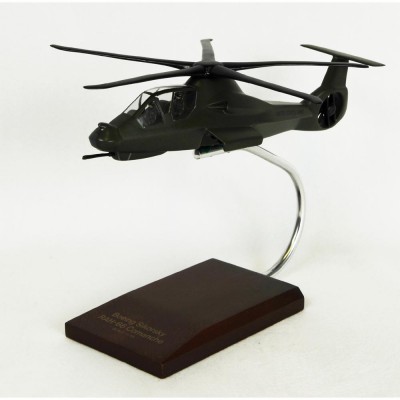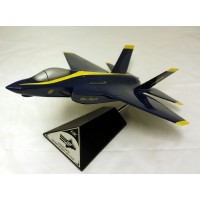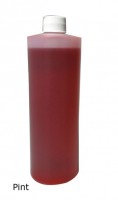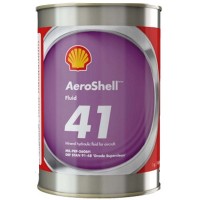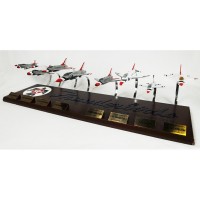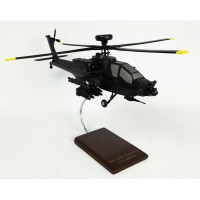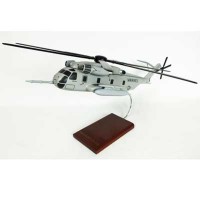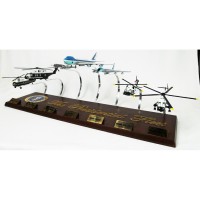1-877-795-2278 | info@aircraftspruce.ca
Aircraft Spruce Canada
Brantford, ON Canada
Corona, CA | Peachtree City, GA
Chicago, IL | Wasilla, AK
Aircraft Spruce Canada
Brantford, ON Canada
Corona, CA | Peachtree City, GA
Chicago, IL | Wasilla, AK
SAME DAY SHIPPING ON ORDERS PLACED BY 2 PM | 877-795-2278
Rah-66 Commanche Model
$468.00/Each
Part# 13-10837
MFR Model# D0748
MFR Model# D0748
Overview
|
The RAH-66 Comanche is an advanced U.S. Army military helicopter for reconnaissance, incorporating stealth techniques. The US Army planned to purchase almost 1,300 Commanches for scout and light attack roles and in May 1995, the first of the prototypes rolled out of the Sikorsky Aircraft Corporations helicopter production facility. The prototypes maiden flight was on January 4, 1996. The RAH-66s very sophisticated design and navigation systems, allowing it to operate at night and in bad weather. Its airframe was designed to fit more easily than the Apache into transport aircraft or into transport ships, enabling it to be deployed to hot spots quickly. The RAH-66A has a crew of 2. It has a maximum speed of 175 knots and a range of 262 nmi. The primary user of the RAH-66 Comanche was the United States Army. On February 23, 2004, the US Army cancelled the Comanche helicopter program to provide funds to renvation with existing helicopter fleet of aging attack, utility and reconnaissance aircraft. Other factor was the growing popularity of Unmanned Aerial Vehicles for reconnaissance purposes and UAVs had proven their worth in Afghanistan and Iraq. Technology incorporated to the Comanche will be integrated into the Apache and other US military helicopter developments and some its roles will be taken over by the Bell ARH-70. |
Q&A
Please note, Aircraft Spruce Canada's personnel are not certified aircraft mechanics and can only provide general support and ideas, which should not be relied upon or implemented in lieu of consulting an A&P or other qualified technician. Aircraft Spruce Canada assumes no responsibility or liability for any issue or problem which may arise from any repair, modification or other work done from this knowledge base. Any product eligibility information provided here is based on general application guides and we recommend always referring to your specific aircraft parts manual, the parts manufacturer or consulting with a qualified mechanic.

 Aircraft Spruce Canada
Aircraft Spruce Canada
